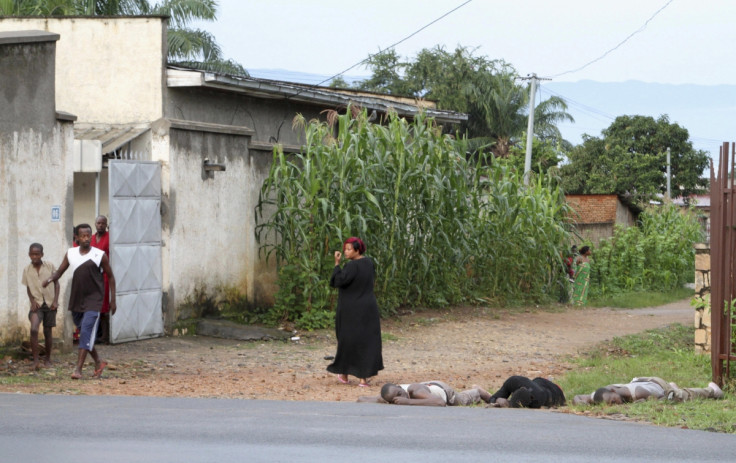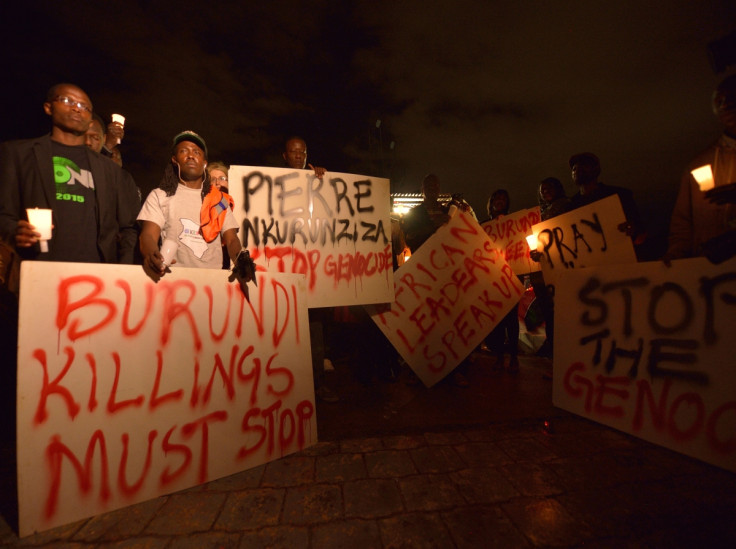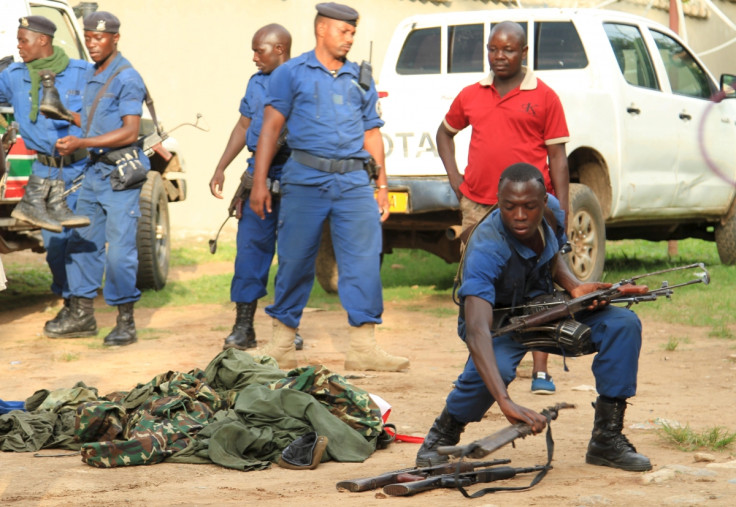Burundi: 'Help us, the world needs to know that a genocide is under way' says opposition

"Help us, the world needs to know that the genocide is underway." These were the words of Jeremie Minani, a spokesman for the Burundian coalition known as Cnared, following the death of nearly 90 people during clashes in the Burundian capital on 11 December.
The UN Security Council (UNSC) unanimously voted on 12 November for a resolution condemning increasing killings, torture and other human rights violations in Burundi. Human rights groups have urged action against what witnesses call a deadly government crackdown on opposition members, after at least 300 people were killed since President Pierre Nkurunziza launched a controversial bid to prolong his term in office in April.
Until now, battle-lines in the crisis have followed the political divide, but many fear prolonged violence could reopen old ethnic rifts. Burundi's 1993-2005 civil war pitted rebels of the Hutu majority − including one led by Nkurunziza − against what was then an army led by the Tutsi minority.
A 'genocide' under way
"There is an emergency for the international community to act and take measures to protect the civilian population. The world needs to understand there absolutely is a genocide underway in Burundi, against a part of the population who is opposed to the third term, and there is an ethnic element to it," Minani told IBTimes UK, highlighting the lack of action from the international community.
While the Burundian presidency said the police was ensuring the restoration of security in the capital Bujumbura, Minani warned Nkurunziza's only solution for today's crisis may be "stopping" all those opposing his mandate.
"The majority of young people have been targeted because of their ethnic affiliation, others because they did not belong to the ruling CNDD-FDD party or the Imbonerakure [the youth wing of Burundi's CNDD-FDD]," he explained.
Explaining that a "genocide" is underway in the country from which more than 220,000 have fled, Minani claimed the situation is a stark reminder of that of Rwanda in 1993-1994, when between 800,000 and 1 million Tutsis and moderate Hutus were slaughtered.

"We believe the ruling power is trying to breed anger in Tutsis, so when Tutsis will revolt, they will be able to tell the Hutu population that the government is fighting against Tutsis and that they needs their help," Minani alleged. "If nothing is done immediately, everyone needs to understand that the country will fall back into a new civil war. The facts are already there: the message of hatred is currently vehiculated [being driven] across the country and they have now taken action".
The spokesman urged the international community to take measures to protect civilians by, for instance, sending in a Blue Helmets peacekeepers protection force and immediately urging every party to negotiate.
"If the regime refuses, international leaders will have to isolate it. Measures will be mostly symbolic and will not help bend the regime, but will help open the dialogue. The country needs to find peace again."
International community inaction
Pancrace Cimpaye, spokesman for the Alliance for Democratic Change (ADC-IKIBIRI), one of the country's largest opposition parties, meanwhile, described as "dramatic" the fact that the international community "is really at odds with the actual situation in Burundi".
"The inaction of the international community is mind-blowing. They [the regime] will continue to massacre people, in silence," Cimpaye told IBTimes UK.
He questioned why world leaders are not as mobilised as they had been following a crackdown by Guinea's military ruler Moussa Dadis Camara that left more than 150 dead after security forces opened fire on thousands of anti-government protesters at the capital Conakry's main stadium in 2009.

"Nkurunziza, in less than 24 hours, killed more than 90 people on 12 December but the world is not acting. His killing machine is continuing today. They are now transporting cadavers to bury them in mass graves. People need to understand a genocide is underway, they can't say they are not aware," Cimpaye claimed.
The United States told its citizens to vacate Burundi following this weekend's violence not long after Belgium also advised its citizens to leave − a call Cimpaye denounced, saying: "Burundians can die, as long as the Americans or Belgiums are safe."
"They only want to protect themselves, but not protect the people who are in danger. They are urging their citizens to flee because they have understood that the ruling power is considering the devil."
Presidency regrets violent deaths
Following the massacres, presidential adviser Willy Nyamitwe condemned the persons and organisations "working very hard to disturb the peace in Burundi".
"The Burundi government regrets violent and untimely deaths," he said adding he "felt badly to see all these lives cut short by this human barbarity. A whole future compromised in a peaceful Burundi."
The United Nations's special adviser on genocide, Adama Dieng, meanwhile, told the BBC: "We can observe today in Burundi a clear manipulation of ethnicity by both the government and opposition".
© Copyright IBTimes 2025. All rights reserved.






















